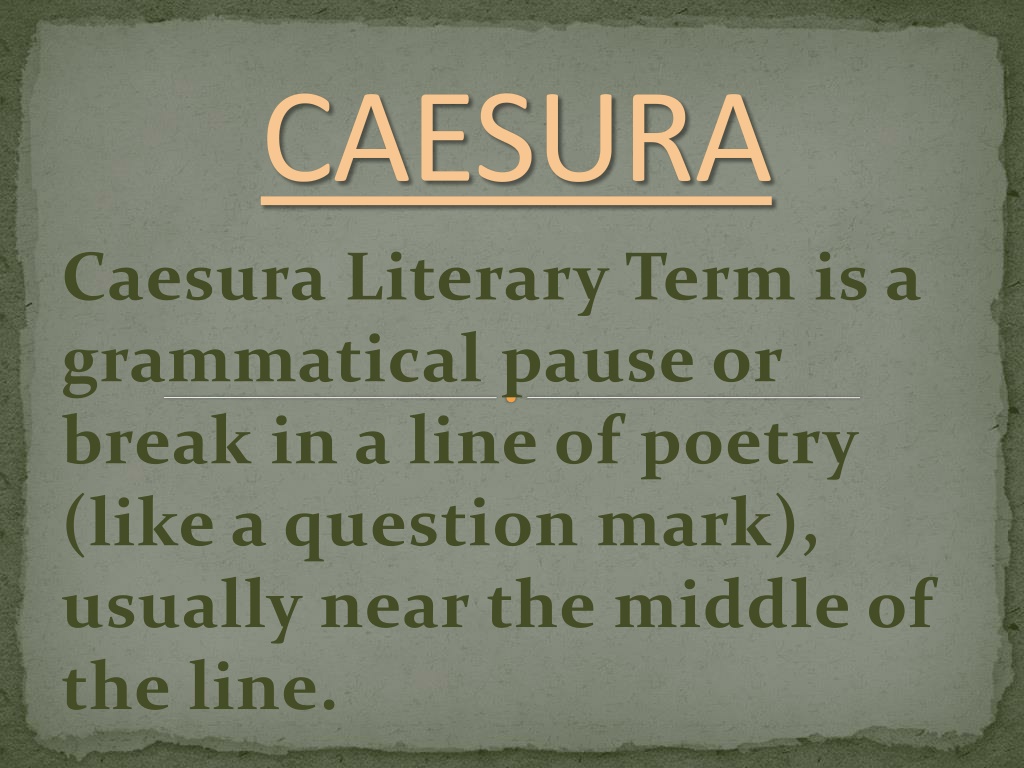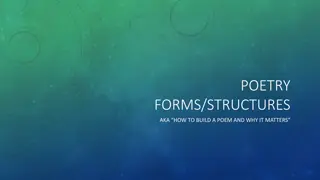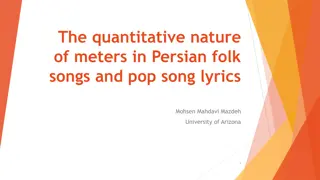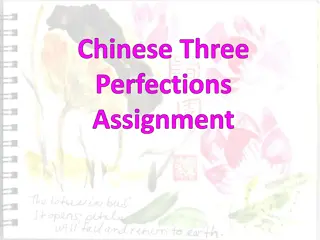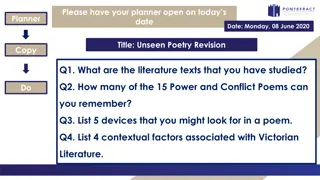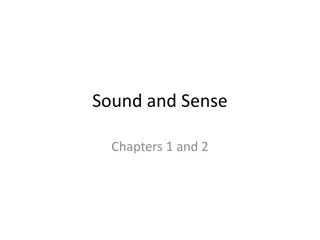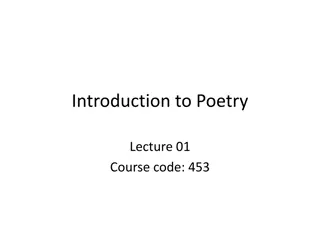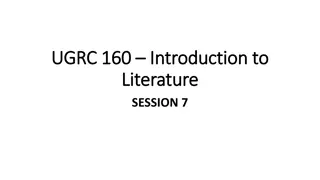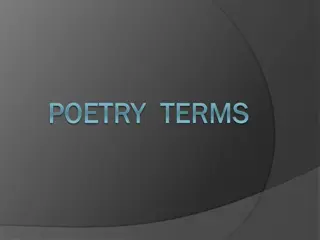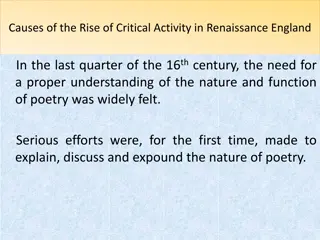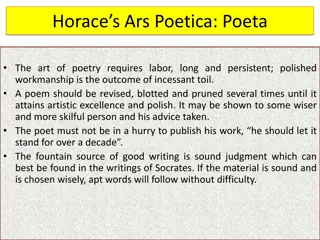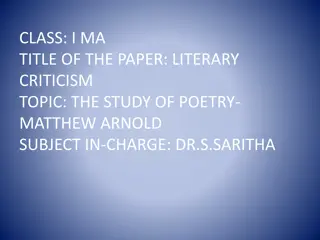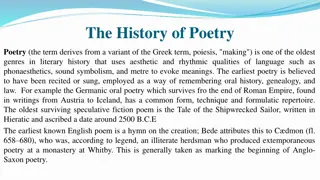Understanding Caesura in Poetry
Caesura, a literary term, refers to a pause or break in a line of poetry usually near the middle of the line. It is dictated by sense or speech rhythm and is indicated by the symbol //. Caesura can be used for rhetorical effect and is exemplified in works like Beowulf and Edgar Allan Poe's "The Raven." The concept is explored through examples and explanations from various poems, showcasing its significance in poetic structure and meaning.
Download Presentation

Please find below an Image/Link to download the presentation.
The content on the website is provided AS IS for your information and personal use only. It may not be sold, licensed, or shared on other websites without obtaining consent from the author. Download presentation by click this link. If you encounter any issues during the download, it is possible that the publisher has removed the file from their server.
E N D
Presentation Transcript
CAESURA Caesura Literary Term is a grammatical pause or break in a line of poetry (like a question mark), usually near the middle of the line.
A caesura is usually dictated by sense or natural speech rhythm rather than by metrics. In poetry scansion, a caesura is usually indicated by the symbol //. The caesura can also be used for rhetorical effect, as in "To err is human; || to forgive, divine." by Alexander Pope
Beowulf: The Poetry of Beowulf Here are the same lines in modern English from Burton Raffel s translation: Out from the marsh,from the foot of misty Hills and bogs,bearing God s hatred,Grendel came, hoping to kill Anyone he could trap on this trip to high Herot. Punctuation reproduces pause effect of the caesura.
Latin Cynthia prima fuit; || Cynthia finis erit. ("Cynthia was the first; Cynthia will be the last" Propertius) Bible (for all the gods of the Pagans are nothing, but the Lord made heaven) Old English Hw t! we Gar-Dena || on geardagum ("Lo! we Spear- Danes, in days of yore. . .")
Sing a Song of Six-Pence So, if we were to lineate Sing a Song of Six-Pence as Beowulf s author might have, it might look like this (caesuras marked): Sing a song of sixpence, ||a pocket full of rye. Four and twenty blackbirds, || baked in a pie. When the pie was opened, || the birds began to sing; Wasn t that a dainty dish, ||to set before the king? The king was in his counting house, ||counting out his money; The queen was in the parlour, ||eating bread and honey. The maid was in the garden, ||hanging out the clothes; When down came a blackbird ||and pecked off her nose.
Edgar Allen Poes The Raven. Once upon a midnight dreary, || while I pondered weak and weary, Over many a quaint and curious || volume of forgotten lore, While I nodded, nearly napping, || suddenly there came a tapping, As of someone gently rapping, || rapping at my chamber door. ` Tis some visitor, || I muttered, || `tapping at my chamber door - Only this, and nothing more. Ah, distinctly I remember || it was in the bleak December, And each separate dying ember|| wrought its ghost upon the floor. Eagerly I wished the morrow; || vainly I had sought to borrow From my books surcease of sorrow || sorrow for the lost Lenore - For the rare and radiant maiden || whom the angels named Lenore - Nameless here for evermore.
